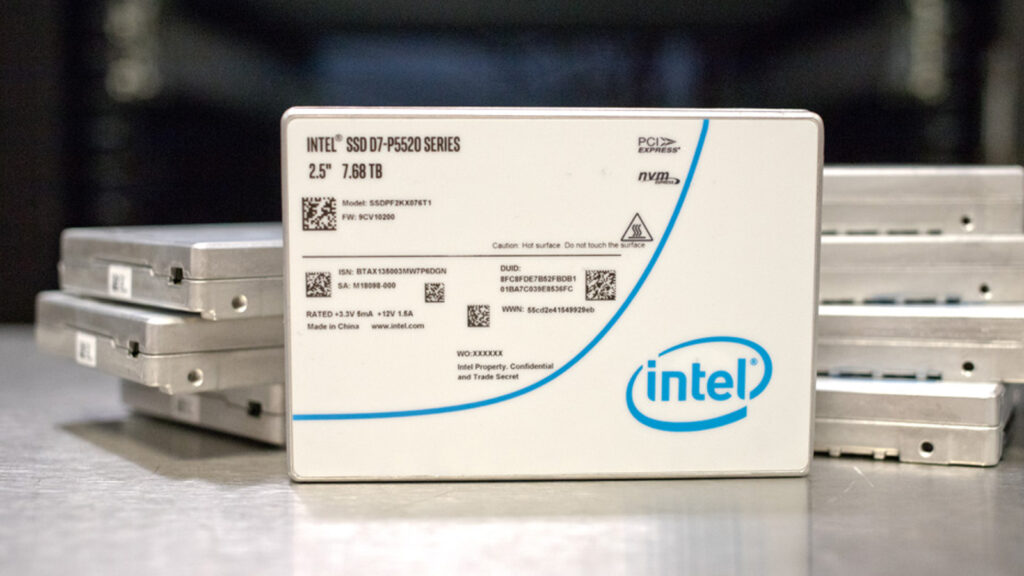Our friends at Solidigm recently announced that they have expanded their performance-optimized D7 Series of solid state drives (SSDs). The new D7-P5520 and D7-P5620 comprise the first two families of products to come from Solidigm since it spun off from Intel and became a standalone company in December 2021.
With the updates to the series–the capacity offerings, breadth of form factors and optimized performance capabilities–Solidigm can now lay claim to having the industry’s most advanced PCIe 4.0 SSD family.
Here are 6 things we thought you should know about the announcement.
1/ Great for mixed workloads – The D7-P5520 line is designed for read-intensive and light mixed workloads while the D7-P5620 line is ideal for mixed workloads. Both are optimized for real-world compute and storage server workloads.(For you Solidigm aficionados, it’s worth noting that the P5620 replaces the old P4610 while the P5520 replaces the P5510.)
2/ Refined over time – The new drives are built on insights gained from multiple generations of PCIe 4.0 SSDs and reflect the learnings of deep technical engagements with leading cloud service providers, OEMs and storage innovators.
3/ Reaching new heights – D7 Series drives are optimized for real-world workloads. They are designed with zero tolerance for data errors and have been tested to the industry’s highest standards. They offer accelerated performance and reduced total cost of ownership (TCO) by enabling a smaller storage footprint and lower power consumption.
4/ Big performance – The new drives provide capacity and performance improvements over prior generations, allowing them to boost performance by an eye-popping 33%. The new drives offer accelerated performance across a range of workloads.
| Model | 4K Random Read (generation to generation) | 4K Random Write (generation to generation) | Quality of service random read (QD1) (generation to generation) |
| D7-P5520 | Up to 42% higher | Up to 17% higher | Up to 43% better |
| D7-P5620 | Up to 56% higher | 1Up to 53% higher | Up to 76% better |
5/ Built-in reliability – Solidigm has built reliability directly into the drives. For example, extra firmware checks are added to validate that data was saved accurately in the event of power loss.
6/ Real value – The higher performance and expanded capacities the new drives offer mean users can look forward to reducing their total cost of ownership (TCO). For example, a 10M IOPS 2U server can reduce its storage footprint by as much as 27% while reducing power consumption by 28% (generation over generation).

Solidigm D7-P5520 SSD (image courtesy of StorageReview)
New technologies like this are precisely why DataON relies on Solidigm TLC NAND SSDs for our Integrated Systems and validated nodes for Azure Stack HCI. This announcement lays down a marker for Solidigm and represents an exciting first step as the company evolves following its spinoff from Intel. Big things to come and we’ll be waiting eagerly to see what’s next.
Learn more about DataON Integrated Systems for Azure Stack HCI
Learn more about DataON validated nodes for Azure Stack HCI